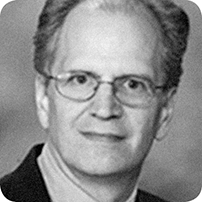|
Evolution of Research on Interventions for Individuals With Autism Spectrum Disorder: Implications for Behavior Analysts |
| Sunday, May 27, 2012 |
| 9:00 AM–9:50 AM |
| 303/304 (TCC) |
| Area: SCI; Domain: Applied Research |
| Instruction Level: Intermediate |
| CE Instructor: Tristram Smith, Ph.D. |
| Chair: Jennifer N. Y. Fritz (University of Houston - Clear Lake) |
| TRISTRAM SMITH (University of Rochester Medical Center) |
 Tristram Smith, Ph.D., is an associate professor of pediatrics at the University of Rochester Medical Center (URMC), where he leads federally-funded studies comparing the efficacy of different interventions for children with autism spectrum disorders. He is also a clinician in URMC's Community Consultation Program, serving students with ASD and other intellectual disabilities in schools and other agencies. His commitment to the study and treatment of children with ASD began in 1982, when he had the opportunity to volunteer as a buddy for an adult with autism who lived near his college. This experience inspired him to apply to graduate school at the University of California, Los Angeles, where he studied clinical psychology and worked as a therapist and researcher with O. Ivar Lovaas, Ph.D., in the UCLA Young Autism Project. Before moving to Rochester in 2000, he directed clinics for children with autism and their families in the states of California, Iowa, and Washington. He has authored or coauthored several of the most widely-cited studies on treatment outcomes for children with ASD. Tristram Smith, Ph.D., is an associate professor of pediatrics at the University of Rochester Medical Center (URMC), where he leads federally-funded studies comparing the efficacy of different interventions for children with autism spectrum disorders. He is also a clinician in URMC's Community Consultation Program, serving students with ASD and other intellectual disabilities in schools and other agencies. His commitment to the study and treatment of children with ASD began in 1982, when he had the opportunity to volunteer as a buddy for an adult with autism who lived near his college. This experience inspired him to apply to graduate school at the University of California, Los Angeles, where he studied clinical psychology and worked as a therapist and researcher with O. Ivar Lovaas, Ph.D., in the UCLA Young Autism Project. Before moving to Rochester in 2000, he directed clinics for children with autism and their families in the states of California, Iowa, and Washington. He has authored or coauthored several of the most widely-cited studies on treatment outcomes for children with ASD. |
| Abstract: The extraordinary success of behavior analytic interventions for individuals with autism spectrum disorder (ASD) has fueled the rapid growth of behavior analysis as a profession. One reason for this success is that for many years behavior analysts were virtually alone in conducting programmatic ASD intervention research. However, that era has ended. Many investigators from other disciplines are now carrying out large-scale intervention studies and beginning to report successes of their own. The increasing number and range of studies has the potential to improve services for individuals with ASD, and it challenges behavior analysts to intensify their research efforts. |
| Target Audience: Professionals and graduate students |
| Learning Objectives: 1. Discuss recent, multidisciplinary research on interventions for individuals with autism spectrum disorders (ASD)- 2. Describe the complementary role of single-case and group comparison studies in developing and validating ASD interventions 3. Identify priorities for future research on ABA interventions for ASD |
| Keyword(s): applied research, autism |
|
| |
| |
|
Technology-Based Therapeutic Tools Targeting Substance Use Disorders: Research Findings, Opportunities, and Future Directions |
| Sunday, May 27, 2012 |
| 9:00 AM–9:50 AM |
| 6BC (Convention Center) |
| Area: SCI; Domain: Basic Research |
| Instruction Level: Advanced |
| CE Instructor: Lisa A. Marsch, Ph.D. |
| Chair: Jesse Dallery (University of Florida) |
| LISA A. MARSCH (Dartmouth College) |
 Dr. Lisa A. Marsch is the Director of the Center for Technology and Behavioral Health at the Dartmouth Psychiatric Research Center at Dartmouth College and a faculty member in the Department of Psychiatry at Dartmouth College. With funding from NIDA, Dr. Marsch has led a line of research focused on the development and evaluation of state of the art, technology-based (computer-, mobile-, and Internet-delivered) interventions targeting substance abuse treatment among youth and adults, HIV prevention among substance-using youth and adults, and substance abuse prevention among children and adolescents. These technology-based therapeutic tools reflect an integration of science-based behavioral interventions with evidence-based informational technologies. This work has been conducted in a variety of settings, including physician offices, substance abuse treatment programs, criminal justice settings, educational settings and via the Internet. This research has provided novel empirical information regarding the role that technology may play in improving substance abuse prevention and treatment in a manner that is cost-effective, ensures fidelity and enables the rapid diffusion and widespread adoption of science-based interventions. Dr. Lisa A. Marsch is the Director of the Center for Technology and Behavioral Health at the Dartmouth Psychiatric Research Center at Dartmouth College and a faculty member in the Department of Psychiatry at Dartmouth College. With funding from NIDA, Dr. Marsch has led a line of research focused on the development and evaluation of state of the art, technology-based (computer-, mobile-, and Internet-delivered) interventions targeting substance abuse treatment among youth and adults, HIV prevention among substance-using youth and adults, and substance abuse prevention among children and adolescents. These technology-based therapeutic tools reflect an integration of science-based behavioral interventions with evidence-based informational technologies. This work has been conducted in a variety of settings, including physician offices, substance abuse treatment programs, criminal justice settings, educational settings and via the Internet. This research has provided novel empirical information regarding the role that technology may play in improving substance abuse prevention and treatment in a manner that is cost-effective, ensures fidelity and enables the rapid diffusion and widespread adoption of science-based interventions. |
| Abstract: Technology offers the potential to play a critical role in improving behavioral health interventions in a manner that enables rapid diffusion of science-based interventions and which may be cost-effective. Evidence-based psychosocial treatment, provided via an automated, technology-based platform (e.g., web, mobile devices), could substantially advance treatment efforts by improving quality and availability of care, leveraging the efforts of clinical staff, and projecting treatment to rural and other underserved areas. Additionally, the temporal flexibility of technology-based interventions may allow for "on-demand," ubiquitous access to therapeutic support, thereby creating unprecedented models of intervention delivery and reducing barriers to accessing care. In this presentation, Dr. Marsch will provide an overview of her line of research focused on the development and evaluation of technology-based, psychosocial prevention and treatment interventions targeting substance use and related issues (including HIV prevention and mental health issues). This work has been conducted in a variety of settings, including physician offices, substance abuse treatment programs, criminal justice settings, educational settings and via the Internet. Dr. Marsch will discuss strategies for developing and evaluating technology-based behavior change interventions in a manner that ensures the inclusion of science-based content and evidence-based informational technologies. She will also discuss potential research opportunities in this area. |
| Target Audience: Graduate students, laboratory and applied scientists |
| Learning Objectives: At the end of this session, the participant should be able to:
1. Describe approaches to measuring health-related behaviors remotely
2. Describe approaches to measuring and monitoring behavior relevant to education remotely or in rural and isolated settings.
3. Design interventions or studies involving remote monitoring. |
| Keyword(s): Behavioral health, remote monitoring, Substance abuse, Technology-based interventions |
|
| |
| |
|
| Bill Hopkins: His Impact as a Behavior Analytic Pioneer |
| Sunday, May 27, 2012 |
| 9:30 AM–10:50 AM |
| 6A (Convention Center) |
| Domain: Theory |
| Chair: James M. Johnston (Auburn University) |
| CE Instructor: James M. Johnston, Ph.D. |
| Abstract: Bill Hopkins, a true ABA Pioneer, impacted our science and our lives over his distinguished 50+ year career. His impact is truly impossible to fully quantify, but the people whose careers and lives he touched speak to his profound contributions with deep respect and admiration.
Bill graduated Emory University in 1957 with a degree in psychology, and in 1961 earned a PhD in clinical psychology from Indiana University. He and his beloved wife, Bot, married in 1957 and started a family in 1961. They moved many places as Bill accepted teaching appointments at the University of Washington, Florida State University, Western Michigan University, Southern Illinois, and The University of Kansas. In 1988, Bill became the head of the psychology department at Auburn University, where he retired in 2001 as emeritus professor of psychology. Upon retirement from teaching, Bill’s passion for our science and its researchers and practitioners did not wane. His contributions continued through the Behavioral Safety Now network, his consultation with many organizations, and his gentle mentoring of students, faculty, and consultants.
A humble man, an ambassador for our field, and a relentless pursuer of scientific principles and application, Bill’s contributions to generations of scientists and practitioners will be honored in this invited address. |
| |
The Contributions of a Young Scientist |
| ROBERT P. HAWKINS (West Virginia University), Steven Zlutnick (University of San Francisco) |
| Abstract: Bill's quiet, wise, good-humored style will be described, along with his level-headed contribution during a time of upheaval at Western Michigan University. |
 Dr. Hawkins is Professor Emeritus at West Virginia University. After earning his Ph.D. at University of Pittsburgh and teaching there, he served on the faculty at University of Washington, held a postdoctoral research fellowship at University of Kansas, served on the faculty at Western Michigan University, and finally at West Virginia, from which he retired in 1997. He consulted to The Pressley Ridge Schools for over 20 years, where he was primary developer of a foster-family-based treatment program that has now treated thousands of youngsters. He was involved in applied behavior analysis for over 30 years, specializing in child and family issues, and is a Fellow of American Psychological Association, American Psychological Society, and American Association of Applied and Preventive Psychology. He served on the editorial boards of Journal of Applied Behavior Analysis, The Behavior Analyst, Behavioral Assessment, Child and Family Behavior Therapy, Analysis and Intervention in Developmental Disabilities, and Education and Treatment of Children (which he founded as School Applications of Learning Theory). He continues to serve on the board of the newsletter Behavior Analysis Digest. He authored or edited 6 books and is listed in several Who's Who. His primary occupations today are raising bonsai, playing golf, bowling, landscaping and maintaining his yard (with his wife), and playing grandfather. Dr. Hawkins is Professor Emeritus at West Virginia University. After earning his Ph.D. at University of Pittsburgh and teaching there, he served on the faculty at University of Washington, held a postdoctoral research fellowship at University of Kansas, served on the faculty at Western Michigan University, and finally at West Virginia, from which he retired in 1997. He consulted to The Pressley Ridge Schools for over 20 years, where he was primary developer of a foster-family-based treatment program that has now treated thousands of youngsters. He was involved in applied behavior analysis for over 30 years, specializing in child and family issues, and is a Fellow of American Psychological Association, American Psychological Society, and American Association of Applied and Preventive Psychology. He served on the editorial boards of Journal of Applied Behavior Analysis, The Behavior Analyst, Behavioral Assessment, Child and Family Behavior Therapy, Analysis and Intervention in Developmental Disabilities, and Education and Treatment of Children (which he founded as School Applications of Learning Theory). He continues to serve on the board of the newsletter Behavior Analysis Digest. He authored or edited 6 books and is listed in several Who's Who. His primary occupations today are raising bonsai, playing golf, bowling, landscaping and maintaining his yard (with his wife), and playing grandfather. |
| |
A Teacher and Researcher at The University of Kansas |
| JOHN J. CONARD (ACES ABA) |
| Abstract: Bill spent 18 years at The University of Kansas where he made significant contributions to the science through his publications and teaching. His colleagues reminisce about Bill’s years in Kansas and the lasting impact of his work. |
 |
| |
A Department Chair and ABA Leader: The Auburn Years |
| M. CHRISTOPHER NEWLAND (Auburn University), RICHARD KEVIN FLEMING (University of Massachusetts Medical School) |
| Abstract: Bill Hopkins arrived at Auburn University in the Fall of 1988 to take over the position of Department Head from Peter Harzem. Bill’s eight years as Department Head were remarkable on many fronts. He recruited junior and mid-career faculty members who were solid scientists, many with funded research programs, and who shared Bill’s enthusiasm for graduate education and a meaningful undergraduate major in Psychology. He advocated a democratic approach to departmental governance that contributed to a shared sense that all faculty contributed to the department’s well-being. Bill also continued his strong presence as a leader in the area of Organizational Behavior Management (OBM), which included being a strong mentor for his students, many of whom are now OBM leaders. His gentle approach served as a model for many of us who worked with Bill and provided a calm spirit even during contentious discussions. He retired from Auburn, but certainly not from behavior analysis, in 2001. |
 Chris Newland has been a member of ABAI since sometime in the late 70’s. He first met Bill Hopkins when he joined the Department of Psychology at Auburn University, in 1988, arriving a few days before Bill did. Newland has remained in the department since that time where has taught the Experimental Analysis of Behavior, Behavioral Pharmacology, Behavioral Neuroscience, and the Behavioral Effects of Environmental Contaminants, among other courses. He has twice served as director of the Experimental Program at Auburn. He maintains an active behavioral pharmacology/toxicology laboratory and his research is supported by the National Institute of Environmental Health Sciences. Chris Newland has been a member of ABAI since sometime in the late 70’s. He first met Bill Hopkins when he joined the Department of Psychology at Auburn University, in 1988, arriving a few days before Bill did. Newland has remained in the department since that time where has taught the Experimental Analysis of Behavior, Behavioral Pharmacology, Behavioral Neuroscience, and the Behavioral Effects of Environmental Contaminants, among other courses. He has twice served as director of the Experimental Program at Auburn. He maintains an active behavioral pharmacology/toxicology laboratory and his research is supported by the National Institute of Environmental Health Sciences.
|
| |
An Advisor to OBM Practitioners |
| LAURA L. METHOT (CLG, Inc.) |
| Abstract: Bill’s dedication to advancing the science continued through numerous OBM practitioners even after his retirement from academia. We were lucky in CLG to have Bill’s input and influence as we learned how to help companies embed behavior analysis into their businesses by developing internal consultants. The methodology and tools Bill helped create have stood the test of time and have been replicated across many client situations with great impact. He was also instrumental in helping develop our internal training and materials to ensure that as we translated the language of behavior analysis for business we stayed true to the underlying principles of our science. Those impacted by Bill’s enduring passion and wisdom recall his influence, both in person and via video messages. |
 Laura Methot’s passion and expertise are in helping organizations expand their leadership capabilities to create conditions for successful business execution. The impact of her work is evident in bottom-line business results and how her clients across multiple industries talk of tangible culture change and leadership effectiveness as a result of working with her.
Recognized as a leading behavior analyst with extensive international experience in private and public sector businesses, Laura’s areas of expertise include: Laura Methot’s passion and expertise are in helping organizations expand their leadership capabilities to create conditions for successful business execution. The impact of her work is evident in bottom-line business results and how her clients across multiple industries talk of tangible culture change and leadership effectiveness as a result of working with her.
Recognized as a leading behavior analyst with extensive international experience in private and public sector businesses, Laura’s areas of expertise include:
- Organizational systems and behavior analysis
- Facilitating executive alignment and deployment effectiveness
- Leading enterprise-wide coaching and performance improvement solutionsEducation and Background
Laura holds an M.A. in Industrial/Organizational Psychology and a Ph.D. in Applied Behavior Analysis from Western Michigan University. She also earned a B.A. in Psychology (Honours) from Saint Mary’s University in Halifax, where she currently is an adjunct professor.
Laura has published in several peer-reviewed scientific journals, including Human Factors, Canadian Psychology, and the Journal of Organizational Behavior Management, and has been a guest reviewer for Canadian Psychology, a journal of the Canadian Psychological Association. She also has presented at professional conferences for the Association for Behavior Analysis International, the Organizational Behavior Management Network, the Atlantic Conference on Ergonomics, the Canadian Psychological Association, and the Canadian Society for Industrial and Organizational Psychology. |
|
| |
| |
|
Systems Change and Behavior Analysis: The Impact of the Florida PBS Project |
| Sunday, May 27, 2012 |
| 10:00 AM–10:50 AM |
| 303/304 (TCC) |
| Area: PRA; Domain: Service Delivery |
| CE Instructor: Donald K. Kincaid, Ph.D. |
| Chair: Cynthia M. Anderson (University of Oregon) |
| DONALD K. KINCAID (University of South Florida) |
 Dr. Donald Kincaid is a Professor of Child and Family Studies at the University of South Florida. Don Kincaid co-directs the Division of Applied Research and Educational Support and the Florida Center for Inclusive Communities, a University Center for Excellence in Developmental Disabilities. Don is also the Director of the Florida Positive Behavior Support Project at the University of South Florida. He also directs USF's participation in the OSEP Positive Behavioral Supports and Interventions Center, a partnership of universities and agencies across the country. His primary interests are in applying positive behavior support and behavior analysis for individual students, classrooms, and entire schools. Much of his professional activity involves coordinating systems change efforts at a local, state, and national level to support the implementation of evidence-based practices. Dr. Kincaid also teaches at the university level and serves on a number of editorial and advisory boards. Dr. Donald Kincaid is a Professor of Child and Family Studies at the University of South Florida. Don Kincaid co-directs the Division of Applied Research and Educational Support and the Florida Center for Inclusive Communities, a University Center for Excellence in Developmental Disabilities. Don is also the Director of the Florida Positive Behavior Support Project at the University of South Florida. He also directs USF's participation in the OSEP Positive Behavioral Supports and Interventions Center, a partnership of universities and agencies across the country. His primary interests are in applying positive behavior support and behavior analysis for individual students, classrooms, and entire schools. Much of his professional activity involves coordinating systems change efforts at a local, state, and national level to support the implementation of evidence-based practices. Dr. Kincaid also teaches at the university level and serves on a number of editorial and advisory boards. |
| Abstract: The field of behavior analysis has shown tremendous potential to produce significant system change. Unfortunately, the application of science and technology in social systems isn't just about the quality of the evidence-base but also the capacity to navigate the implementation of the science through complex systems change efforts. This presentation will provide an overview of what we have learned in the past dozen years regarding the implementation of a positive behavior support approach in Florida. The Florida PBS Project has had a mission to increase the capacity of school districts to implement PBS within a multi-tiered continuum of student support. The presentation will discuss the systems change practices that have led to implementation in over 1200 schools and the outcome data about the impact of that implementation. Lessons learned from state, district and inter-project collaborations will be shared with the participants as well as existing barriers to implementation of a multi-tiered system of support with fidelity. |
| Keyword(s): education, multi-tiered support, PBS, systems change |
|
| |
| |
|
Correcting Myopia in Organizational Behavior Management |
| Sunday, May 27, 2012 |
| 11:00 AM–11:50 AM |
| 6A (Convention Center) |
| Area: OBM; Domain: Theory |
| Instruction Level: Basic |
| CE Instructor: Dwight Harshbarger, Ph.D. |
| Chair: Lori H. Diener (Performance Blueprints, Inc.) |
| DWIGHT HARSHBARGER (West Virginia University) |
 Dwight is known for his work in applied psychology, including seven years as the Executive Director of the Cambridge Center for Behavioral Studies. He is a native of West Virginia and studied at West Virginia University, the University of California-Berkley and the University of North Dakota where he completed a Ph.D. Dwight then did post-graduate work at Harvard University. He joined the faculty of West Virginia University and became a tenured professor of psychology. He later served as a corporate consultant then as a senior executive at Sealy, Inc., and Reebok International, Ltd. He currently holds appointments as Adjunct Professor of Community Medicine at West Virginia University, and Senior Fellow of the Cambridge Center. He is a member of Phi Beta Kappa, and a Fellow of both the American Psychological Association and the American Psychological Society. Dwight's historical fiction novel (2009), Witness at Hawks Nest, is an insider's compelling story of America's deadliest and least known industrial disaster: the tragedy of Union Carbide's 1930s constrction of the giant Hawks Nest hydroelectric tunnel. The novel has received widespread attention and is in pre-production for a dramatic film. Dwight is the recipient of the 2011 Organizational Behavior Management Network Lifetime Acheivement Award. Dwight is known for his work in applied psychology, including seven years as the Executive Director of the Cambridge Center for Behavioral Studies. He is a native of West Virginia and studied at West Virginia University, the University of California-Berkley and the University of North Dakota where he completed a Ph.D. Dwight then did post-graduate work at Harvard University. He joined the faculty of West Virginia University and became a tenured professor of psychology. He later served as a corporate consultant then as a senior executive at Sealy, Inc., and Reebok International, Ltd. He currently holds appointments as Adjunct Professor of Community Medicine at West Virginia University, and Senior Fellow of the Cambridge Center. He is a member of Phi Beta Kappa, and a Fellow of both the American Psychological Association and the American Psychological Society. Dwight's historical fiction novel (2009), Witness at Hawks Nest, is an insider's compelling story of America's deadliest and least known industrial disaster: the tragedy of Union Carbide's 1930s constrction of the giant Hawks Nest hydroelectric tunnel. The novel has received widespread attention and is in pre-production for a dramatic film. Dwight is the recipient of the 2011 Organizational Behavior Management Network Lifetime Acheivement Award. |
| Abstract: OBMers are diligent students of an organization's overt practices' looking ever-so-closely at input, throughput, and output while mapping processes. We identify contingencies of reinforcement and punishment, as well as sometimes obvious and occasionally near-invisible feedback that drives behavior in organizations. Our publications present the power of behavior-based technology in carefully defined applications. Applications of behavioral technology to improve products and services are valuable. Yet we often operate with a narrow, even myopic, view of performance that lacks the breadth and depth of analysis to yield a full assessment of an organization's performance. Often omitted is the power of its history. An organization's values may showcase today's promises, apparent reality, while masking darker, deadly, current and historical backstage practices. The continuing devastation from covert practices in the financial industry provides abundant evidence of the failure of limited vision. Underground mining disasters present tragic and all-too-familiar cases of apparent regulatory compliance masking pathological practices. This presentation will highlight histories and cumulative power of flawed, sometimes deadly, histories and practices in two chemical and pharmaceutical companies. Suggestions will be presented for, 1) improving organizational assessments, including corrective lens for OBM myopia, and 2) development of more complete models of organizations and performance. |
| Target Audience: This tutorial is suitable for introductory level and above. |
| Learning Objectives: At the conclusion of this session, participants should be able to:
1. Identify and discriminate between an organization's front-stage vs. back-stage operations, or public "presentations of the organizational self" vs. underlying realities.
2. Identify ways in which failures in an organization's identifications of hazards / risks / flawed products have impacted the health and well-being of workers and the public.
3. Identify two methods to improve assessments of organizational operations. |
| Keyword(s): organizational assessment |
|
| |
| |
|
The Role of Problem Solving in Teaching Complex Verbal Repertoires |
| Sunday, May 27, 2012 |
| 11:00 AM–11:50 AM |
| 303/304 (TCC) |
| Area: VBC; Domain: Applied Research |
| Instruction Level: Intermediate |
| CE Instructor: Linda A. LeBlanc, Ph.D. |
| Chair: Anna I. Petursdottir (Texas Christian University) |
| LINDA A. LEBLANC (Auburn University), James E. Carr (Behavior Analyst Certification Board) |
 Linda A. LeBlanc, Ph.D., BCBA-D, MI Licensed Psychologist is a professor of psychology at Auburn University and the director of its applied behavior analysis graduate program. Dr. LeBlanc received her Ph.D. in 1996 from Louisiana State University and previously served on the psychology faculties at Claremont McKenna College (1997-1999) and Western Michigan University (1999-2008). Her current research and clinical interests include the behavioral treatment of autism and developmental disabilities across the lifespan, behavioral gerontology, verbal behavior, and technology-based interventions. Dr. LeBlanc has published over 70 articles and book chapters and is a current associate editor of Education and Treatment of Children and Behavior Analysis in Practice and a former associate editor of the Journal of Applied Behavior Analysis. She serves as an editorial board member for Behavioral Interventions, Behavioral Modification, European Journal of Behavior Analysis, Research in Autism Spectrum Disorders, Research in Developmental Disabilities and The Behavior Analyst. Dr. LeBlanc serves on the Board of Directors of the Association for Professional Behavior Analysts and the Alabama Autism Provider Network and has worked with state agencies in both Michigan and Alabama on improving identification and education and treatment practices for individuals with autism and improvement of training and professional preparation systems for autism providers. Linda A. LeBlanc, Ph.D., BCBA-D, MI Licensed Psychologist is a professor of psychology at Auburn University and the director of its applied behavior analysis graduate program. Dr. LeBlanc received her Ph.D. in 1996 from Louisiana State University and previously served on the psychology faculties at Claremont McKenna College (1997-1999) and Western Michigan University (1999-2008). Her current research and clinical interests include the behavioral treatment of autism and developmental disabilities across the lifespan, behavioral gerontology, verbal behavior, and technology-based interventions. Dr. LeBlanc has published over 70 articles and book chapters and is a current associate editor of Education and Treatment of Children and Behavior Analysis in Practice and a former associate editor of the Journal of Applied Behavior Analysis. She serves as an editorial board member for Behavioral Interventions, Behavioral Modification, European Journal of Behavior Analysis, Research in Autism Spectrum Disorders, Research in Developmental Disabilities and The Behavior Analyst. Dr. LeBlanc serves on the Board of Directors of the Association for Professional Behavior Analysts and the Alabama Autism Provider Network and has worked with state agencies in both Michigan and Alabama on improving identification and education and treatment practices for individuals with autism and improvement of training and professional preparation systems for autism providers. |
| Abstract: Language training curricula for individuals with developmental disabilities often include programs that teach expressive or intraverbal categorization in which the learner is taught to answer questions such as "What toys do you have at home?" or "Tell me the names of some animals." Although such repertoires are undoubtedly important, some instructional approaches instill these repertoires as rote intraverbal chains. However, it is apparent that many sophisticated learners answer such categorical questions not through rote learning but by first engaging in other (often covert) problem solving responses. In this presentation, I will share the results of two investigations in which preschool-aged children were successfully taught verbal and visual imagining strategies to answer questions about category membership. The implications of these studies for teaching language to individuals with developmental disabilities will be discussed and some recommendations toward that end will be provided. |
| Target Audience: _ |
| Learning Objectives: _ |
| Keyword(s): categorization, intraverbal behavior, problem solving |
|
| |
| |
|
| Finding the Baby in the Bathwater: A Behavioral Systems Approach to Child Development |
| Sunday, May 27, 2012 |
| 2:00 PM–3:20 PM |
| 4C-2 (Convention Center) |
| Area: DEV/TPC; Domain: Theory |
| Chair: Gary D. Novak (California State University, Stanislaus) |
| Discussant: Sigrid S. Glenn (University of North Texas) |
| CE Instructor: Gary D. Novak, Ph.D. |
| Abstract: Behavioral development can be seen to be a large open chaotic system with nearly infinite sources of influence. The behavioral systems approach presented by Novak & Pelaez (2004) provides a perspective on how behavior analysis principles apply to the maelstrom of development. This symposium will describe basic principles of behavioral development and apply them to emergent behavioral patterns seen in typical and atypical development. Pelaez will provide the basic concepts underpinning the behavioral systems approach. Important behavioral development principles such as multiple determinism, equifinality, cusps, phase shifts, and levels of systems will be among the principles described. Novak's paper will show how the behavioral systems approach can be used to explain the process of language acquisition and other communication. The role of ever-changing child-caregiver reciprocity will be given a central role. Suchowierska will apply the behavioral systems approach to the development of autism. Autism will be characterized as a diverse constellation of organized behavior patterns overlapping, but deviating from developmentally typical ones. Early behavioral interactional deficits in the development of autism will be identified. |
| Keyword(s): Autism Development, Behavioral Development, Behavioral Systems, Language Development |
| |
Behavior Systems in Development: From Simple to Complex Levels of Analysis |
| MARTHA PELAEZ (Florida International University) |
| Abstract: Behavior systems theory suggests the impossibility of complete prediction and control of human behavior. Nevertheless, one can apply the principles of behavior systems to examine behavior development and its complexity (Novak & Pelaez, 2004). Multiple determinism suggests that human behavior is determined by: 1) the genetic constitutional make-up of the individual; 2) the interactional history of the person with his/her environment; (3) current physiological and environmental conditions; and 4) the influence of earlier behavioral trajectories on current learning (behavioral dynamics), including behavioral momentum. As viewed from a behavioral systems approach, different levels exist contemporaneously, with increasing complexity in the system as we move up the level of analysis. These include System Level I: Basic processes of development; System Level II: Emergent characteristics; System Level III: Social interactions; and System Level IV: Societal and cultural contexts. Biological structures such as organ systems can be seen as another level of systems. While the organized patterns of behavior that we call, for example "autism" are often observed during our functional analysis at Systems Level II, it is important to recognize the role of multiple determinants and the contribution that analysis of the other systems levels can provide. |
 Martha Pelaez is Frost Professor in the College of Education at Florida International University (FIU). She received her Ph.D. in 1992, in developmental psychology, winning the International Dissertation Award from the International Society for Infant Studies. After completing a postdoctoral fellowship at the University of Miami, Miller School of Medicine, in 1994, she joined the faculty at FIU, and was appointed full professor in 2005. She has studied mother-infant interactions and early social learning processes, as well as designed applied interventions with children at risk of language delays and developmental and learning problems. Her recent publications include two research articles published in JABA (2011, 2012) and one in EJBA (2011). She co-authored a textbook with Novak (2004) entitled “Child and Adolescent Development: A Behavioral Systems Approach.” Dr. Pelaez has more than 70 publications in books and mainstream refereed journals (including the American Psychologist and Child Development). She founded the Behavior Development Bulletin in 1990, and currently serves as Associate Editor with M. Commons. She has served on nine editorial boards, as well as serving as past Program Chair for the American Psychological Association, Division 25, and past Program Co-Chair for the Association for Behavior Analysis. Martha Pelaez is Frost Professor in the College of Education at Florida International University (FIU). She received her Ph.D. in 1992, in developmental psychology, winning the International Dissertation Award from the International Society for Infant Studies. After completing a postdoctoral fellowship at the University of Miami, Miller School of Medicine, in 1994, she joined the faculty at FIU, and was appointed full professor in 2005. She has studied mother-infant interactions and early social learning processes, as well as designed applied interventions with children at risk of language delays and developmental and learning problems. Her recent publications include two research articles published in JABA (2011, 2012) and one in EJBA (2011). She co-authored a textbook with Novak (2004) entitled “Child and Adolescent Development: A Behavioral Systems Approach.” Dr. Pelaez has more than 70 publications in books and mainstream refereed journals (including the American Psychologist and Child Development). She founded the Behavior Development Bulletin in 1990, and currently serves as Associate Editor with M. Commons. She has served on nine editorial boards, as well as serving as past Program Chair for the American Psychological Association, Division 25, and past Program Co-Chair for the Association for Behavior Analysis. |
| |
First Language, Taught and Learned: A Behavioral Systems Account of the Development of Language and Communication |
| GARY D. NOVAK (California State University, Stanislaus) |
| Abstract: In a broad sense, the study of behavioral development is concerned with just two basic questions. The first is "What develops?" The second is "How does this development occur?" Traditional developmental psychology focuses primarily on the first question, which is fundamentally descriptive in nature. The behavioral systems approach follows the tradition of behavior analysis and is primarily concerned with the second question, and is essentially explanatory. However, both the "What?" and the "How?" of development are necessary to provide a satisfactory account. This paper will describe a behavioral systems approach to typical and atypical communication and language development. The roles of genetic-constitutional, historical, and environmental factors will be described. Special emphasis will be placed on the role of the social environment as provided by caregivers and interventionists. Behavioral cusps that are pivotal in typical and atypical language development will be identified. The important role of hidden skills and deficits will be explained and detailed. The role of the caregiver as language acquisition device will be emphasized. |
 Gary Novak is Professor Emeritus of Psychology and Child Development at California University, Stanislaus. He has a B.A. in Psychology from Rutgers University, a M.A. in Psychology from Temple University, and earned his Ph.D. in Developmental Psychology from the State University of New York at Stony Brook. Gary Novak was Founding Dean of the College of Human and Health Sciences at CSU, Stanislaus, where he taught for more than 35 years. He was twice Psychology Department Chairperson, founded the campus Child Development Center, and received the University's Outstanding Professor Award. His publications include two books on a behavioral approach to child and adolescent development: Developmental Psychology: Dynamical Systems and Behavior Analysis (also published in Italian as Psicologia Dello Sviluppo: Sistemi Dinamici e Analisi Comportamentale) and Child and Adolescent Development: A Behavioral Systems Approach. He has many publications and professional presentations on language, cognitive, and behavioral development and on behavioral systems approaches to development. His most recent publication is: Novak, G & Pelaez, M. (2010). Autism: A Behavioral Systems Approach in Mayville, E.A. and Mulick, J. A. (Eds.) Behavioral Foundations of Effective Autism Treatment. He is a Board Certified Behavior Analyst. Gary Novak is Professor Emeritus of Psychology and Child Development at California University, Stanislaus. He has a B.A. in Psychology from Rutgers University, a M.A. in Psychology from Temple University, and earned his Ph.D. in Developmental Psychology from the State University of New York at Stony Brook. Gary Novak was Founding Dean of the College of Human and Health Sciences at CSU, Stanislaus, where he taught for more than 35 years. He was twice Psychology Department Chairperson, founded the campus Child Development Center, and received the University's Outstanding Professor Award. His publications include two books on a behavioral approach to child and adolescent development: Developmental Psychology: Dynamical Systems and Behavior Analysis (also published in Italian as Psicologia Dello Sviluppo: Sistemi Dinamici e Analisi Comportamentale) and Child and Adolescent Development: A Behavioral Systems Approach. He has many publications and professional presentations on language, cognitive, and behavioral development and on behavioral systems approaches to development. His most recent publication is: Novak, G & Pelaez, M. (2010). Autism: A Behavioral Systems Approach in Mayville, E.A. and Mulick, J. A. (Eds.) Behavioral Foundations of Effective Autism Treatment. He is a Board Certified Behavior Analyst. |
| |
Perceiving Autism as Organized Patterns of Characteristic Behaviors |
| MONIKA M. SUCHOWIERSKA (Warsaw School of Social Psychology) |
| Abstract: For behavior analysts, it is obvious that autism should not be treated as an internal disorder that causes a child to behave in a certain way. Rather, we look at it as a label describing the child's many behaviors. Taking into consideration a behavioral systems approach—autism is perceived as organized patterns of characteristic behaviors that are shaped by multiple environmental factors in reciprocal interaction. The concept of equifinality, coalescent organization of biological and learned characteristics as well as behavioral cusps will be discussed with regards to autism. Due to a very important place of early intervention for children with autism, the presentation will focus on early mother-infant non-vocal and vocal communication that forms the basis for such core skills as joint attention, social referencing and relational responding. |
 Dr Monika Suchowierska received her Ph.D. in Developmental and Child Psychology from the University of Kansas—Human Development and Family Life Department—in 2003. During her studies in the U.S., Monika became interested and trained in applied behavior analysis (ABA), and particularly in the application of behavioral principles to working with people with developmental disabilities. Upon her return to Poland in 2003, she embarked on the goal of disseminating the knowledge about ABA in Poland. In 2004, she joined the faculty of Psychology Department at the Warsaw School of Social Sciences and Humanities (SWPS). In 2005, she founded Center for Early Intervention "Step by Step" - the first behaviorally oriented private institution in Warsaw that provides early intensive intervention to children with autism. As a faculty member, Dr. Suchowierska teaches courses on applied behavior analysis, cognitive-behavioral therapy, autism and developmental psychology. She works with master thesis students on projects relating to educating children with and without disabilities. In 2006, Dr. Suchowierska established the first in the country post graduate studies in applied behavior analysis and is a member of the only Faculty of Behavior Analysis in Poland. In the years 2006-2009, Dr. Suchowierska served as the President of Polish Association for Behavior Analysis and currently is the Vice-president of the Polish Society for Behavioral Psychology. Monika is the first Board Certified Behavior Analyst in Poland. Dr. Suchowierska is the Director of Psychology in English studies at SWPS, and a coordinator for two US-EU exchange programs—the Atlantis program and the Excellence in Mobility program. In 2010, she became the Vice-Dean of the Psychology Department at SWPS. In 2010, she was a Fulbright Scholar at California State University Stanislaus. Dr Monika Suchowierska received her Ph.D. in Developmental and Child Psychology from the University of Kansas—Human Development and Family Life Department—in 2003. During her studies in the U.S., Monika became interested and trained in applied behavior analysis (ABA), and particularly in the application of behavioral principles to working with people with developmental disabilities. Upon her return to Poland in 2003, she embarked on the goal of disseminating the knowledge about ABA in Poland. In 2004, she joined the faculty of Psychology Department at the Warsaw School of Social Sciences and Humanities (SWPS). In 2005, she founded Center for Early Intervention "Step by Step" - the first behaviorally oriented private institution in Warsaw that provides early intensive intervention to children with autism. As a faculty member, Dr. Suchowierska teaches courses on applied behavior analysis, cognitive-behavioral therapy, autism and developmental psychology. She works with master thesis students on projects relating to educating children with and without disabilities. In 2006, Dr. Suchowierska established the first in the country post graduate studies in applied behavior analysis and is a member of the only Faculty of Behavior Analysis in Poland. In the years 2006-2009, Dr. Suchowierska served as the President of Polish Association for Behavior Analysis and currently is the Vice-president of the Polish Society for Behavioral Psychology. Monika is the first Board Certified Behavior Analyst in Poland. Dr. Suchowierska is the Director of Psychology in English studies at SWPS, and a coordinator for two US-EU exchange programs—the Atlantis program and the Excellence in Mobility program. In 2010, she became the Vice-Dean of the Psychology Department at SWPS. In 2010, she was a Fulbright Scholar at California State University Stanislaus. |
|
| |
| |
|
| You May Not Agree With Everything I've Done, But You Won't Forget That I Was Here: A Tribute to Joseph V. Brady |
| Sunday, May 27, 2012 |
| 2:00 PM–3:20 PM |
| 6BC (Convention Center) |
| Area: SCI/BPH; Domain: Basic Research |
| Chair: Michael F. Cataldo (Kennedy Krieger Institute) |
| Discussant: Michael F. Cataldo (Kennedy Krieger Institute) |
| CE Instructor: Michael F. Cataldo, Ph.D. |
| Abstract: In an extraordinary career spanning over 6 decades, Joe Brady established a remarkable legacy. He was a man of vision. His empirical contributions ranged from investigations of the behavioral conditions that produce stress and associated physiological consequences, to pioneering work in behavioral pharmacology, to conditions affecting performance of astronauts in space. He was a man of exceptional generosity. For example, he established the Behavioral Biology unit at Johns Hopkins University and helped found the Institutes for Behavior Resources. He was a man of abiding inspiration. He trained, educated, and supported numerous students, post-docs, and colleagues; most have gone on to distinguished careers of their own. Recognizing that it would be impossible to capture adequately the breath and richness of Joe's contributions in a single session, in this symposium, close colleagues and friends will celebrate his career. |
| Instruction Level: Basic |
| Target Audience: Those with interests in the history of behavior analysis, in behavioral pharmacology, and in understanding and treating drug abuse. |
Learning Objectives: At the conclusion of this session, participants should be able to:
- Identify the immense contributions of Joe Brady to behavior analysis, behavioral pharmacology, and science in general
- Articulate some of the important contributions of Joe Brady to the field.
|
| |
Pluripotent Progenitor of Behavior Analytic Neuroscience |
| TRAVIS THOMPSON (University of Minnesota) |
| Abstract: Joseph V. Brady established one of the first truly interdisciplinary �physiological psychology� research and research training programs (now called neuroscience), in the country after WWII. Brady divided his time between Walter Reed Army Research Institute and the Psychopharmacology Laboratory at the University of Maryland, College Park. He displayed in precept and deed, critical scientific leadership principles: (1) surround yourself with the brightest, most talented people in the field, (2) promote innovative interdisciplinary problem solving based on a solid foundation of principles of functionalism, similar to L. J. Henderson & B. F. Skinner, and (3) value scientific principles but ignore disciplines. Like embryonic stem cells, Joe Brady was a progenitor, conducting his own scientific research while encouraging independent lines of fundamental and applied research. His approach was pluripotent, promoting scientific advances that evolved into many important, sometimes unexpected independent fields, such behavioral neuroendocrinology, brain mechanisms in reinforcement, drug addition, basic and clinical behavioral pharmacology, physical rehabilitation, and analysis of complex human behavior in individual and social behavior settings. He was a highly strategic thinker, seeding new theoretically significant endeavors, working with federal agencies and scientific societies to create ongoing support for scientific training and infrastructure, and modeling outstanding interdisciplinary science. |
 Dr. Thompson earned a Ph.D. from the University of Minnesota and completed post-doctoral training at the University of Maryland and Cambridge University, UK. He has authored 230 journal articles and chapters in the areas of behavior analysis, behavioral pharmacology, and genetics. He has written or edited 30 books, including Straight Talk on Autism, which was a finalist for a National Book Award in 2008. With C. R. Schuster, he co-authored Behavioral Pharmacology. Dr. Thompson has mentored 47 doctorates in psychology, pharmacology, and special education. He was Director of the John F. Kennedy Center, Vanderbilt University. Dr. Thompson is presently a faculty member in the Department of Educational Psychology, University of Minnesota, where he has directed early intervention services for children with autism. He has received numerous awards, including the APA Division 25 Don Hake Award, the Research Award, AAID, Distinguished Research Award, The ARC US, the APA Div. 33 Edgar A. Doll Award, and SABA Impact of Science on Application Award. Dr. Thompson is past president of the Behavioral Pharmacology Society, APA Divisions 28 (Psychopharmacology) and 33 (Intellectual and Developmental Disabilities). He is a fellow in ABAI, a member of its Practice Board, and Co-Chair of the 2010, 2011 ABAI Autism Conferences. Dr. Thompson earned a Ph.D. from the University of Minnesota and completed post-doctoral training at the University of Maryland and Cambridge University, UK. He has authored 230 journal articles and chapters in the areas of behavior analysis, behavioral pharmacology, and genetics. He has written or edited 30 books, including Straight Talk on Autism, which was a finalist for a National Book Award in 2008. With C. R. Schuster, he co-authored Behavioral Pharmacology. Dr. Thompson has mentored 47 doctorates in psychology, pharmacology, and special education. He was Director of the John F. Kennedy Center, Vanderbilt University. Dr. Thompson is presently a faculty member in the Department of Educational Psychology, University of Minnesota, where he has directed early intervention services for children with autism. He has received numerous awards, including the APA Division 25 Don Hake Award, the Research Award, AAID, Distinguished Research Award, The ARC US, the APA Div. 33 Edgar A. Doll Award, and SABA Impact of Science on Application Award. Dr. Thompson is past president of the Behavioral Pharmacology Society, APA Divisions 28 (Psychopharmacology) and 33 (Intellectual and Developmental Disabilities). He is a fellow in ABAI, a member of its Practice Board, and Co-Chair of the 2010, 2011 ABAI Autism Conferences. |
| |
Consequences of the Experimental Analysis of Behavior |
| THOMAS H. KELLY (University of Kentucky College of Medicine) |
| Abstract: Joseph V. Brady, an interdisciplinary research pioneer, forged a productive, creative and illustrious career by applying the principles of the experimental analysis of behavior to investigations of the functional relationships operating at the nexus of biology and behavior. In the process, Brady and colleagues demonstrated the remarkable precision, flexibility and generality of these principles as applied to such diverse topics as stress and emotion, neurobiology, psychophysics and biofeedback, drug abuse and drug treatment, language, clinical research ethics, and human learning, motivation and social behavior, culminating in the experimental analysis of behavior in space. Brady also applied these principles effectively in the training of graduate students and junior colleagues. Selected clinical studies and reports will be presented to document the manner in which Brady applied the principles of the Experimental Analysis of Behavior throughout his career. The corpus of Bradys life work serves as a rich case study of the consequences of steadfast engagement in the experimental analysis of behavior. |
 Thomas H. Kelly, Ph.D., is the Robert Straus Professor and Vice-Chair of the Department of Behavioral Science in the College of Medicine at the University of Kentucky, Professor of Psychiatry and Psychology, and Scientific Director of the Center for Drug Abuse Research Translation. He also serves as the Director of Research Education, Training and Career Development for the Center for Clinical and Translational Science. He is a clinical behavioral pharmacologist examining drug-behavior interactions and assessing bio-behavioral factors associated with individual differences in drug abuse vulnerability. Thomas H. Kelly, Ph.D., is the Robert Straus Professor and Vice-Chair of the Department of Behavioral Science in the College of Medicine at the University of Kentucky, Professor of Psychiatry and Psychology, and Scientific Director of the Center for Drug Abuse Research Translation. He also serves as the Director of Research Education, Training and Career Development for the Center for Clinical and Translational Science. He is a clinical behavioral pharmacologist examining drug-behavior interactions and assessing bio-behavioral factors associated with individual differences in drug abuse vulnerability. |
| |
The Brady Legacy: Team Performance in Simulated Space Exploration Missions |
| STEVEN R. HURSH (Institutes for Behavior Resources, Inc.) |
| Abstract: Joe Brady was a pioneer in the study of human habitability in space. He pioneered work to study performance of primates in space, starting with rhesus monkeys and chimpanzees and later humans in confined programmed environments. In the last decade of his life, he capitalized on advances in computer simulation to explore team performance in simulated space missions and created a test bed for examining a range of factors that can alter the performance of individuals and teams, including topics such as communication modes, autonomy, incentive conditions, and workload. As a direct outgrowth, very recent research has lead to the development of a brief test of cooperative behavior within a behavioral economics framework. This work has been demonstrated to NASA and is now deployed for operational testing in Antarctica. |
 Dr. Steven R. Hursh (B.A., Wake Forest University, 1968; Ph.D., University of California, San Diego, 1972) is the President of the Institutes for Behavior Resources and Adjunct Professor of Behavioral Biology, Johns Hopkins University School of Medicine. Dr. Hursh has forty years experience as a researcher and is author of over 75 articles, book chapters and books. He is a former associate editor of the Journal of the Experimental Analysis of Behavior. His seminal article on economic concepts for the analysis of behavior is considered one of the most significant articles in the history of the journal. Dr. Hursh has been a key figure in the establishment of behavioral economics as a major conceptual area. His research papers have introduced into the behavioral vocabulary a number of "household terms" in behavioral psychology: open and closed economies, demand curves and demand elasticity, unit price, substitution and complementarity, Pmax, Omax, and recently an exponential equation for demand and responding that has broad generality across species and reinforcers. His extensions to drug abuse and the framing of drug abuse policy have had a major impact on the research direction of the National Institute of Drug Abuse, which now funds a variety of studies on the behavioral economics of drug abuse. The concept of essential value derived from exponential demand has promise as a framework for assessing abuse liability and defining drug addiction. Dr. Hursh continues to make contributions as a consultant on research at three major university medical schools looking at behavioral economic processes with humans and non-human primates. Dr. Hursh is currently the President of the Institutes for Behavior Resources, Baltimore, MD, where he directs original research on fatigue, behavioral economics, drug abuse, and cooperative team performance. He has had twenty-three years of experience as a research manager in the Army: consultant to the Army Surgeon General for Research Psychology, Director of the Division of Neuropsychiatry at the Walter Reed Army Institute of Research, and as a medical staff officer in the Pentagon, Office of the Assistant Secretary of the Army (Research, Development, and Acquisition). Dr. Hursh spent 12 years with Science Applications International Corporation as a program manager prior to being selected to head the Institutes for Behavior Resources. Dr. Steven R. Hursh (B.A., Wake Forest University, 1968; Ph.D., University of California, San Diego, 1972) is the President of the Institutes for Behavior Resources and Adjunct Professor of Behavioral Biology, Johns Hopkins University School of Medicine. Dr. Hursh has forty years experience as a researcher and is author of over 75 articles, book chapters and books. He is a former associate editor of the Journal of the Experimental Analysis of Behavior. His seminal article on economic concepts for the analysis of behavior is considered one of the most significant articles in the history of the journal. Dr. Hursh has been a key figure in the establishment of behavioral economics as a major conceptual area. His research papers have introduced into the behavioral vocabulary a number of "household terms" in behavioral psychology: open and closed economies, demand curves and demand elasticity, unit price, substitution and complementarity, Pmax, Omax, and recently an exponential equation for demand and responding that has broad generality across species and reinforcers. His extensions to drug abuse and the framing of drug abuse policy have had a major impact on the research direction of the National Institute of Drug Abuse, which now funds a variety of studies on the behavioral economics of drug abuse. The concept of essential value derived from exponential demand has promise as a framework for assessing abuse liability and defining drug addiction. Dr. Hursh continues to make contributions as a consultant on research at three major university medical schools looking at behavioral economic processes with humans and non-human primates. Dr. Hursh is currently the President of the Institutes for Behavior Resources, Baltimore, MD, where he directs original research on fatigue, behavioral economics, drug abuse, and cooperative team performance. He has had twenty-three years of experience as a research manager in the Army: consultant to the Army Surgeon General for Research Psychology, Director of the Division of Neuropsychiatry at the Walter Reed Army Institute of Research, and as a medical staff officer in the Pentagon, Office of the Assistant Secretary of the Army (Research, Development, and Acquisition). Dr. Hursh spent 12 years with Science Applications International Corporation as a program manager prior to being selected to head the Institutes for Behavior Resources. |
|
| |
| |
|
Establishing the Conditional Use of Socially Acceptable Alternatives for Problem Behavior: Practical Applications With Individuals With Moderate And Severe Developmental Disabilities |
| Sunday, May 27, 2012 |
| 3:00 PM–3:50 PM |
| 303/304 (TCC) |
| Area: DDA; Domain: Applied Research |
| CE Instructor: Joe Reichle, Ph.D. |
| Chair: Anjali Barretto (Gonzaga University) |
| JOE REICHLE (University of Minnesota) |
 Joe Reichle, Ph.D. is Professor of Speech-Language-Hearing Sciences and Educational Psychology at the University of Minnesota and a Fellow of the American Speech Language and Hearing Association. He is an internationally recognized expert in the areas of augmentative communication and communication intervention for persons with significant developmental disabilities with over 60 refereed journal articles. He has co-edited numerous books focused on his areas of expertise. He has served as an associate editor of the Journal of Speech-Language-Hearing Research and Language Speech and Hearing in Schools. Dr. Reichle served on the executive committee of the Dean of the University of Minnesota's Graduate School and has administrative experience as a former associate chair of the Dept. of Speech-Language-Hearing Sciences. Currently he serves as the Director of Research for the Minnesota Leadership and Education Program in Neurodevelopmental Disabilities. Dr. Reichle has served as a PI, co-PI and investigator on numerous federally funded research and training grants. His current research interests focus on the conditional use of communicative behavior implemented to replace escape functioned problem behavior. Additionally, he is interested in collateral behavior resulting from focused communication intervention (and the influence of treatment dosage on these phenomena). Joe Reichle, Ph.D. is Professor of Speech-Language-Hearing Sciences and Educational Psychology at the University of Minnesota and a Fellow of the American Speech Language and Hearing Association. He is an internationally recognized expert in the areas of augmentative communication and communication intervention for persons with significant developmental disabilities with over 60 refereed journal articles. He has co-edited numerous books focused on his areas of expertise. He has served as an associate editor of the Journal of Speech-Language-Hearing Research and Language Speech and Hearing in Schools. Dr. Reichle served on the executive committee of the Dean of the University of Minnesota's Graduate School and has administrative experience as a former associate chair of the Dept. of Speech-Language-Hearing Sciences. Currently he serves as the Director of Research for the Minnesota Leadership and Education Program in Neurodevelopmental Disabilities. Dr. Reichle has served as a PI, co-PI and investigator on numerous federally funded research and training grants. His current research interests focus on the conditional use of communicative behavior implemented to replace escape functioned problem behavior. Additionally, he is interested in collateral behavior resulting from focused communication intervention (and the influence of treatment dosage on these phenomena). |
| Abstract: This presentation will describe a partially validated set of instructional strategies designed to establish the conditional use of "requesting assistance" and "requesting a break" as alternatives to escape functioned problem behavior in young children with significant developmental disabilities. The presentation will discuss the necessity gaining an exact match between communicative alternative and the basis of a learner's escape. The use of competing schedules of reinforcement and several antecedent focused intervention strategies including "signaled delay of reinforcement delivery" will be described as strategies to assist in gaining the moderated use of newly established communicative alternatives. The presentation will also include a brief review of conditional use used with other areas of communicative instruction with individuals who experience severe developmental disabilities. These areas will include the conditional use of communicative modes, requesting items/objects, and requesting attention. Results of the work presented and work reviewed suggest that there is a small but growing base of experimental support of an effective instructional technology to promote the conditional use of socially acceptable social/communicative behavior. At the conclusion of the event, the participant will be able to: 1. Describe what is meant by conditional use of communicative behavior 2. Describe a package of intervention procedures to implement in teaching socially acceptable communicative alternatives to escape behavior used to gain assistance or to gain a brief break from an activity that has become aversive as a result of its length (or magnitude of work). |
|
| |
| |
|
| Without Violence: Constructing the Science of Peace, Justice, and Healing |
| Sunday, May 27, 2012 |
| 3:00 PM–4:20 PM |
| 6A (Convention Center) |
| Area: CSE/CBM; Domain: Theory |
| Chair: Anthony Biglan (Oregon Research Institute) |
| Discussant: Erica Chenoweth (Wesleyan University) |
| CE Instructor: Mark A. Mattaini, Doctor of Social Welfare (DSW) |
| Abstract: There have been some notable gains in recent years, but violence at the interpersonal, economic, structural, and political levels remains a central socio-cultural challenge of the modern era. Human rights violations and conflicts at the individual, local, national, or international level cause deep damage to persons, communities and cultures. Applications of the natural science of behavior and behavioral systems analysis to attempts to challenge injustice, construct peace, and heal people and communities are in their infancy. Still, there are compelling reasons to believe that contributions from that science are possible. In this symposium, the presenters will explore the issues from selectionist and contextualist perspectives, and sketch out what is presently known about strategies for constructing peace, resisting oppression nonviolently, and healing trauma. |
| Keyword(s): achieving peace, nonviolent resistance, trauma, violence |
| |
Achieving Peace at the Individual, Interpersonal, Group, and International Level: An Evolutionary Perspective |
| ANTHONY BIGLAN (Oregon Research Institute) |
| Abstract: This talk will present an evolutionary analysis of the generic features of conflict at several levels: the conflict we, as individuals experience within ourselves, the conflicts that occur between people, and the conflicts between groups—from small groups to international conflicts. Like other organisms, humans have an evolved bias toward detecting and avoiding danger. However our symbolic abilities—while useful for solving problems—mean that humans can perceive and seek to avoid threat that is only symbolically present. Reducing conflict both within and between individuals and groups depends on our reducing the power of symbolic relations to influence behavior that contributes to conflict. I will describe interventions that contribute to this change at all levels and will discuss the implications of current knowledge for reducing what appears to be the biggest threat to human wellbeing, namely our evolved tendencies to symbolically experience threat. |
 Anthony Biglan is a senior scientist at Oregon Research Institute and the co-director of the Promise Neighborhood Research Consortium. He has been conducting research on the development and prevention of child and adolescent problem behavior for the past 30 years. His work has included studies of the risk and protective factors associated with tobacco, alcohol, and other drug use; high-risk sexual behavior, and antisocial behavior. He has conducted numerous experimental evaluations of interventions to prevent tobacco use both through school-based programs and community-wide interventions. He has also performed evaluations of interventions to prevent high-risk sexual behavior, antisocial behavior, and reading failure. He and colleagues at the Center for Advanced Study in the Behavior Sciences published a book summarizing the epidemiology, cost, etiology, prevention, and treatment of youth with multiple problems (Biglan et al., 2004). He is a former president of the Society for Prevention Research, and a member of the Institute of Medicine Committee on Prevention, which recently released its report documenting numerous evidence-based preventive interventions. Anthony Biglan is a senior scientist at Oregon Research Institute and the co-director of the Promise Neighborhood Research Consortium. He has been conducting research on the development and prevention of child and adolescent problem behavior for the past 30 years. His work has included studies of the risk and protective factors associated with tobacco, alcohol, and other drug use; high-risk sexual behavior, and antisocial behavior. He has conducted numerous experimental evaluations of interventions to prevent tobacco use both through school-based programs and community-wide interventions. He has also performed evaluations of interventions to prevent high-risk sexual behavior, antisocial behavior, and reading failure. He and colleagues at the Center for Advanced Study in the Behavior Sciences published a book summarizing the epidemiology, cost, etiology, prevention, and treatment of youth with multiple problems (Biglan et al., 2004). He is a former president of the Society for Prevention Research, and a member of the Institute of Medicine Committee on Prevention, which recently released its report documenting numerous evidence-based preventive interventions. |
| |
Behavioral Systems Science for Nonviolent Resistance |
| MARK A. MATTAINI (Jane Addams College of Social Work) |
| Abstract: Mohandas Gandhi often indicated that nonviolent resistance was "a science," but very little scientific work (almost none from a natural science perspective) has been pursued in this area. In this paper, the author will outline applications of behavioral systems science to the practice of effective nonviolent struggle. Given the enormous human costs of violent strategies of resistance, insurgency and rebellion, their poor record of sustainable success, and the emerging evidence for the potential power of nonviolent alternatives, the rigorous exploration of alternatives is a critically important direction for applied cultural analysis. Effective strategic analysis can only emerge from an understanding of the underlying dynamics of strategic options. This presentation elaborates four major clusters of strategic options, identified using a functional, natural science perspective; the basic behavioral and behavioral systems dynamics involved with each will be explored here through historical and contemporary cases. The four clusters explored in this paper are: Constructive noncooperation; Protest and persuasion; Disruptive noncooperation; and Active disruption. These clusters overlap with, but also depart in significant ways from, the widely accepted classification developed by Gene Sharp. The conceptual analyses presented here suggest directions for practical experimentation, clearly an essential although challenging next step. |
 Mark Mattaini is Associate Professor, Jane Addams College of Social Work, University of Illinois at Chicago, where he has led the development of the new Community Health and Urban Development concentration. Editor of the scientific journal Behavior and Social Issues, Dr. Mattaini is also the author/editor of 10 books, including PEACE POWER for Adolescents: Strategies for a Culture of Nonviolence (NASW Press), and Finding Solutions to Social Problems: Behavioral Strategies for Change (American Psychological Association), and over 80 other publications. Since the mid-90s, Dr. Mattaini has focused his research and practice on behavioral systems science for violence prevention with youth, constructing cultures of respect in organizations and communities, and effective nonviolent social action. He is the principal developer of the behavior analytic PEACE POWER strategy, which has been presented and implemented in at least 12 states, 2 Canadian provinces, and was recently introduced in a UNESCO-funded project in Brazil. He also recently provided consultation to the National Police and community organizations working to develop more effective ways to work with criminal youth gangs in Medellin, Colombia. He is currently completing a book, tentatively entitled Strategic Nonviolent Power: The Science of Satyagraha, analyzing the potential contributions of the science of behavior to nonviolent social action supporting justice and human rights. Mark Mattaini is Associate Professor, Jane Addams College of Social Work, University of Illinois at Chicago, where he has led the development of the new Community Health and Urban Development concentration. Editor of the scientific journal Behavior and Social Issues, Dr. Mattaini is also the author/editor of 10 books, including PEACE POWER for Adolescents: Strategies for a Culture of Nonviolence (NASW Press), and Finding Solutions to Social Problems: Behavioral Strategies for Change (American Psychological Association), and over 80 other publications. Since the mid-90s, Dr. Mattaini has focused his research and practice on behavioral systems science for violence prevention with youth, constructing cultures of respect in organizations and communities, and effective nonviolent social action. He is the principal developer of the behavior analytic PEACE POWER strategy, which has been presented and implemented in at least 12 states, 2 Canadian provinces, and was recently introduced in a UNESCO-funded project in Brazil. He also recently provided consultation to the National Police and community organizations working to develop more effective ways to work with criminal youth gangs in Medellin, Colombia. He is currently completing a book, tentatively entitled Strategic Nonviolent Power: The Science of Satyagraha, analyzing the potential contributions of the science of behavior to nonviolent social action supporting justice and human rights. |
| |
Beyond PTSD: Treatment for Survivors of Trauma Using Acceptance and Commitment Therapy |
| VICTORIA M. FOLLETTE (University of Nevada, Reno) |
| Abstract: This paper will present an overview of the need for a behavioral therapy that goes beyond the treatment of PTSD symptomatology. Our treatment model uses Acceptance and Commitment Therapy to address a diverse group of problems that can often be considered under the umbrella of experiential avoidance. Experiential avoidance is the unwillingness or inability of an individual to remain in contact with distressing private events. Often, individuals take deliberate steps to avoid these unpleasant emotions and these increased attempts to avoid them serve to increase the frequency and intensity of the distressing feelings. Experiential avoidance is a process that some survivors of sexual abuse or assault engage in to reduce their distress, but it is thought that this increases their risk of subsequent additional victimization (Rosenthal, Rasmussen-Hall, Palm, Batten, S. & Follette, 2006). Treatment that focuses on reducing avoidance and increasing behaviors consistent with valued life goals is an essential alternative to traditional exposure therapy for trauma. While exposure therapy has clearly documented positive outcomes, additional treatment for unresolved trauma related issues is often not available. Treatment goals focused on prevention of re-victimization and behavioral activation in accordance with client-identified values will be discussed. |
 Victoria Follette is recognized as a clinical scientist with a strong foundation in empirically based therapy and has published edited volumes related to mindfulness in psychotherapy and cognitive behavioral approaches to trauma therapy. In 2008 she was named as a Foundation Professor at the University of Nevada, Reno and was also given the state psychological association�s award for Outstanding Psychologist. Currently she is the Chair of the Department of Psychology and is a licensed psychologist in the state of Nevada. Dr. Victoria Follette�s clinical and research work has emphasized an examination of the long term consequences associated with a history of child sexual abuse (Polusny & Follette, 1996). In particular, she has investigated the impact of experiential avoidance in the diverse outcomes associated with various forms of maltreatment in the family of origin (Polusny, Rosenthal, Aban & Follette, 2004). In addition to investigating intrapersonal impacts of trauma, she has also examined interpersonal problems in intimate partner relationships. She has also co-authored a self-help book on ACT for individuals with a history of abuse that can be adapted for group or individual therapy. Dr. Follette supervises a research lab at the University of Nevada, Reno that continues to examine trauma related outcomes, with a special interest in re-victimization. Victoria Follette is recognized as a clinical scientist with a strong foundation in empirically based therapy and has published edited volumes related to mindfulness in psychotherapy and cognitive behavioral approaches to trauma therapy. In 2008 she was named as a Foundation Professor at the University of Nevada, Reno and was also given the state psychological association�s award for Outstanding Psychologist. Currently she is the Chair of the Department of Psychology and is a licensed psychologist in the state of Nevada. Dr. Victoria Follette�s clinical and research work has emphasized an examination of the long term consequences associated with a history of child sexual abuse (Polusny & Follette, 1996). In particular, she has investigated the impact of experiential avoidance in the diverse outcomes associated with various forms of maltreatment in the family of origin (Polusny, Rosenthal, Aban & Follette, 2004). In addition to investigating intrapersonal impacts of trauma, she has also examined interpersonal problems in intimate partner relationships. She has also co-authored a self-help book on ACT for individuals with a history of abuse that can be adapted for group or individual therapy. Dr. Follette supervises a research lab at the University of Nevada, Reno that continues to examine trauma related outcomes, with a special interest in re-victimization. |
|
| |
| |
|
| Commemoration of Charles R. Schuster's Impact on Behavioral Pharmacology and Drug Abuse |
| Sunday, May 27, 2012 |
| 3:30 PM–4:50 PM |
| 6BC (Convention Center) |
| Area: BPH/SCI; Domain: Basic Research |
| Chair: Chris-Ellyn Johanson (Wayne State University) |
| CE Instructor: Kenneth Silverman, Ph.D. |
| Abstract: The talks presented in this symposium will celebrate the contributions of Charles R Schuster, known by everyone as Bob, to behavioral pharmacology by colleagues who directly trained with him. One of Bob's major contributions was the development of the drug self-administration paradigm demonstrating that drugs abused by humans could serve as positive reinforcers in non-human primates. Later, he extended this model of drug-taking behavior to humans. The findings that drugs were similar to other reinforcers in their ability to control behavior completely changed the conceptualization of drug abuse and the paradigm became a major component of the field of behavioral pharmacology. It also allowed the application of the tools and findings of behavioral analysis to further the understanding of the determinants of drug-taking behavior. A major variable controlling self-administration was the availability and nature of alternative reinforcers. In this symposium, each of the four talks will focus on the impact of alternative reinforcers on self-administration behavior. The final talk will demonstrate how the experimental findings in both in non-humans and humans have stimulated the development of innovative behavioral treatments for drug abuse |
| Instruction Level: Basic |
| Keyword(s): Schuster, Tribute |
| Target Audience: Those interested in behavioral pharamcology, in methods of the experimental analysis of behavior, and in the history of behavior analysis. |
Learning Objectives: At the conclusion of this session, the participant should be able to:
- Idenitfy Charles R. Schuster's immense contributions to behavior analysis, behavioral pharmacology, and science in general.
- Articulate his contributions to the study of drug abuse and to the development of methods to treat drug abuse.
|
| |
Behavioral Conditions that Decrease Drug Taking |
| WILLIAM L. WOOLVERTON (University of Mississippi Medical Center) |
| Abstract: Much of behavior, including self-administration of abused drugs, may be conceptualized as involving a choice among available alternatives. Laboratory research involving non-humans has substantially contributed to our understanding of the behavioral determinants of drug choice. It has been demonstrated that the relative magnitude drug and non-drug alternatives, as well relative cost, frequency and probability of reinforcement can all influence the choice to take a drug. In recent experiments, we have found that introducing a delay between the self-administration response and drug delivery can diminish the effectiveness of a drug as a reinforcer. Similarly, delaying the delivery of punisher can decrease the effectiveness of punishment of drug self-administration. For both reinforcement and punishment, the relationship between delay and effectiveness was well predicted by a hyperbolic discounting function. Thus, research with non-humans has much to contribute to our understanding of behavioral factors that can influence drug self-administration. By extension, basic research with non-humans can help suggest behavioral treatment strategies that may be useful alone or in conjunction with pharmacological treatment. |
 Dr. Woolverton is a Professor in the Department of Psychiatry and Human Behavior at the University of Mississippi Medical Center. Trained as a behavioral pharmacologist, he has maintained a multi-disciplinary research effort that has included both pharmacological and behavioral analysis of factors that influence drug self-administration and drug discrimination by non-human subjects. He has published over 170 scientific papers and approximately 30 book chapters. He is well known for his work on the relationship between monoamine neurotransmitters and stimulant abuse, and for his study of the behavioral determinants of the choice to self-administer a drug. He received several awards acknowledging his research contributions. His service and teaching activities include membership on the Board of Directors of the College on Problems of Drug Dependence, several NIH Study Sections, and mentorship of numerous pre- and post-doctoral fellows in behavioral pharmacology and drug abuse research. Dr. Woolverton is a Professor in the Department of Psychiatry and Human Behavior at the University of Mississippi Medical Center. Trained as a behavioral pharmacologist, he has maintained a multi-disciplinary research effort that has included both pharmacological and behavioral analysis of factors that influence drug self-administration and drug discrimination by non-human subjects. He has published over 170 scientific papers and approximately 30 book chapters. He is well known for his work on the relationship between monoamine neurotransmitters and stimulant abuse, and for his study of the behavioral determinants of the choice to self-administer a drug. He received several awards acknowledging his research contributions. His service and teaching activities include membership on the Board of Directors of the College on Problems of Drug Dependence, several NIH Study Sections, and mentorship of numerous pre- and post-doctoral fellows in behavioral pharmacology and drug abuse research. |
| |
Schedule-induced Polydipsia as a Gateway Behavior to Alcohol Dependence |
| KATHLEEN A. GRANT (Oregon Health & Science University) |
| Abstract: Schedule-induced polydipsia (SIP) is a form of adjunctive behavior that is generated when small proportions of food are delivered under intermittent schedules of reinforcement. The term was coined by John Falk and emphasizes both excessiveness (polydipsia) and the adjunctive relationship to the generating schedule (induced). Although most adjunctive behaviors rapidly dissipate when the induction schedule is terminated, SIP using an alcohol solution may establish a lifetime of robust, heavy alcohol self-administration. In other words, SIP can be used to establish alcohol intoxication (indicated by a blood ethanol concentration of >80 mg/dl) as a primary reinforcer. In monkeys subjected to SIP as an initial introduction to ethanol self-intoxication there are individual differences in the probability of future heavy drinking. Using a principal component analysis, the most robust predictor of future heavy drinking is the emergence of rapidly drinking (gulping) a six-drink equivalent (1.5 g/kg) under the SIP conditions. The monkeys that gulp alcohol during SIP subsequently self-administer enough alcohol to produce physical dependence. In contrast, monkey that sip their six-drink equivalent rarely drink an intoxicating dose. It is proposed that the gulping phenotype reflects the reinforcing efficacy of alcohol intoxication and probability of lifetime dependence upon alcohol. |
 Kathleen A. Grant is a Professor in the Department of Behavioral Neurosciences at Oregon Health & Sciences University and a senior scientist in the Division of Neuroscience at the Oregon National Primate Research Center. She earned her Ph.D. in physiological psychology from the University of Washington in 1984. This was followed by a 3-year postdoctoral fellowship at the University of Chicago training with Charles R. Schuster and Chris-Ellyn Johanson. In 1987 she took an appointment as Staff Fellow at the National Institute on Alcohol Abuse and Alcoholism, becoming a Senior Staff Fellow in 1990. In 1991 she joined the faculty at Wake Forest University School of Medicine, where she remained until her appointments to OHSU in 2005. Kathleen A. Grant is a Professor in the Department of Behavioral Neurosciences at Oregon Health & Sciences University and a senior scientist in the Division of Neuroscience at the Oregon National Primate Research Center. She earned her Ph.D. in physiological psychology from the University of Washington in 1984. This was followed by a 3-year postdoctoral fellowship at the University of Chicago training with Charles R. Schuster and Chris-Ellyn Johanson. In 1987 she took an appointment as Staff Fellow at the National Institute on Alcohol Abuse and Alcoholism, becoming a Senior Staff Fellow in 1990. In 1991 she joined the faculty at Wake Forest University School of Medicine, where she remained until her appointments to OHSU in 2005. |
| |
Opportunity Cost in Addiction: Implications for Scheduling Non-drug Alternatives to Reduce Drug Reinforcement |
| MARK GREENWALD (Wayne State University) |
| Abstract: Opportunity cost (OC) is a key concept in behavioral economics. OC refers to the total value (including explicit and implicit time and money) of alternative options that are foregone (not chosen). The study of OC involves understanding relations between choice and scarcity of options available to the individual. This is central to addictive behavior because substance abusers (particularly those who are physically dependent) habitually make choices that sacrifice access to non-drug alternatives. This talk will discuss (1) experimental data with heroin and cocaine abusers that illustrate this concept; and (2) implications for therapeutic approaches to schedule alternatives that may increase the probability of addictive behavior change. |
 Mark Greenwald, Ph.D. (Professor) directs the Substance Abuse Research Division, its Human Pharmacology Laboratory and the outpatient treatment research clinic in the Dept. of Psychiatry and Behavioral Neurosciences at Wayne State University School of Medicine in Detroit, Michigan. He previously directed the Ph.D. training program in Translational Neuroscience at the WSU School of Medicine. He is a Fellow and currently the President of Division 28 (Psychopharmacology and Substance Abuse) of the American Psychological Association. His clinical research studies focus on (1) pharmacological, environmental and individual difference (behavioral history and genetic) determinants of drug seeking and use, interpreted within a behavioral economic approach; (2) using brain-imaging techniques to understand the clinical neurobiology of substance use disorders; and (3) developing medication and behavioral treatments for substance use disorders. The National Institute on Drug Abuse (NIDA) has continuously funded his research since 1996. He has been the principal investigator and a co-investigator on many federally funded grants, and regularly reviews manuscripts for many substance abuse related journals and federal grant applications. Dr. Greenwald credits much of his professional outlook and success to the excellent postdoctoral training that he received with Drs. Charles Schuster and Chris-Ellyn Johanson. Mark Greenwald, Ph.D. (Professor) directs the Substance Abuse Research Division, its Human Pharmacology Laboratory and the outpatient treatment research clinic in the Dept. of Psychiatry and Behavioral Neurosciences at Wayne State University School of Medicine in Detroit, Michigan. He previously directed the Ph.D. training program in Translational Neuroscience at the WSU School of Medicine. He is a Fellow and currently the President of Division 28 (Psychopharmacology and Substance Abuse) of the American Psychological Association. His clinical research studies focus on (1) pharmacological, environmental and individual difference (behavioral history and genetic) determinants of drug seeking and use, interpreted within a behavioral economic approach; (2) using brain-imaging techniques to understand the clinical neurobiology of substance use disorders; and (3) developing medication and behavioral treatments for substance use disorders. The National Institute on Drug Abuse (NIDA) has continuously funded his research since 1996. He has been the principal investigator and a co-investigator on many federally funded grants, and regularly reviews manuscripts for many substance abuse related journals and federal grant applications. Dr. Greenwald credits much of his professional outlook and success to the excellent postdoctoral training that he received with Drs. Charles Schuster and Chris-Ellyn Johanson. |
| |
In Tribute to Charles R. Schuster: An Operant Treatment for Addiction as a Chronic Problem |
| KENNETH SILVERMAN (Johns Hopkins University) |
| Abstract: This presentation will describe a program of research to develop an operant treatment for drug addiction that was heavily influenced by Charles R. Schuster (Bob). Bob, Kenzie Preston, and I began this research at NIDA's Addiction Research Center in Baltimore in the early 1990s. Our studies showed that voucher reinforcement in which patients received monetary vouchers contingent on providing drug-free urine samples could promote cocaine and heroin abstinence in low-income, injection drug users in methadone treatment. Although promising, half of the patients did not respond and many who did relapsed when the voucher intervention was discontinued. Influenced and encouraged by early discussions with Bob, my colleagues and I have been developing an intervention designed to promote abstinence in a large proportion of patients and maintain that abstinence over extended periods of time. The intervention harnesses the reinforcing value of paid employment to finance and maintain abstinence reinforcement. Under this intervention, individuals are hired and paid to work. To reinforce abstinence, participants are required to provide objective evidence of drug abstinence to maintain access to the workplace and maintain maximum pay. This presentation will describe this research program and discuss Bobs invaluable role in the development and future of this intervention. |
 Kenneth Silverman received his doctorate in Developmental and Child Psychology from the University of Kansas in 1984. His doctoral training focused in the areas of operant conditioning and behavior analysis. He completed a postdoctoral research fellowship in Behavioral Pharmacology at the Johns Hopkins University School of Medicine in 1991, and served as a staff fellow in the Clinical Trials Section in the National Institute on Drug Abuse's Addiction Research Center from 1991-1993. He has maintained a faculty appointment in the Department of Psychiatry and Behavioral Sciences, Johns Hopkins University School of Medicine since 1991, and is currently Professor of Psychiatry and Behavioral Sciences. Dr. Silverman's research has focused on developing operant treatments to address the interrelated problems of poverty and drug addiction. His primary research has focused on the development and evaluation of abstinence reinforcement interventions for heroin and cocaine addiction in low-income, inner city adults; the integration of abstinence reinforcement contingencies into model employment settings; the use of employment-based reinforcement in the long-term maintenance of drug abstinence and adherence to addiction treatment medications; and the development of computer-based training to establish critical academic and job skills that chronically unemployed adults need to gain and maintain employment and escape poverty. Kenneth Silverman received his doctorate in Developmental and Child Psychology from the University of Kansas in 1984. His doctoral training focused in the areas of operant conditioning and behavior analysis. He completed a postdoctoral research fellowship in Behavioral Pharmacology at the Johns Hopkins University School of Medicine in 1991, and served as a staff fellow in the Clinical Trials Section in the National Institute on Drug Abuse's Addiction Research Center from 1991-1993. He has maintained a faculty appointment in the Department of Psychiatry and Behavioral Sciences, Johns Hopkins University School of Medicine since 1991, and is currently Professor of Psychiatry and Behavioral Sciences. Dr. Silverman's research has focused on developing operant treatments to address the interrelated problems of poverty and drug addiction. His primary research has focused on the development and evaluation of abstinence reinforcement interventions for heroin and cocaine addiction in low-income, inner city adults; the integration of abstinence reinforcement contingencies into model employment settings; the use of employment-based reinforcement in the long-term maintenance of drug abstinence and adherence to addiction treatment medications; and the development of computer-based training to establish critical academic and job skills that chronically unemployed adults need to gain and maintain employment and escape poverty. |
|
| |